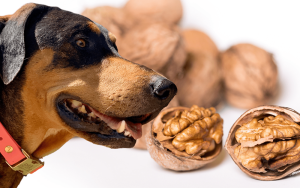Can Dogs Eat Peaches? A Complete Guide to Safe and Healthy Treats for Your Pup

If you’re a pet parent looking to share your favorite fruits with your dog, peaches might be on your mind. These sweet, juicy fruits are a popular summer treat for humans, but can dogs eat peaches too? The short answer is yes, but with some important
guidelines to ensure your furry friend’s safety. In this comprehensive guide, we’ll explore whether peaches are safe for dogs, the potential health benefits, and the precautions you need to take before offering this fruit to your canine companion.
Can Dogs Eat Peaches?
Yes, dogs can eat peaches, but there are important caveats. Peaches are not only safe for dogs to eat in moderation but can also offer a number of health benefits. They are rich in vitamins A and C, which are essential for maintaining your dog’s immune
system, skin health, and overall well-being. However, there are some potential risks associated with feeding peaches to your dog, and you’ll need to know how to properly prepare and serve them.
Health Benefits of Peaches for Dogs
Before delving into the precautions, let’s first look at why peaches can be a healthy snack for your dog when served properly:
1. Packed with Nutrients
Peaches are rich in vitamins A and C, both of which are vital for dogs’ health. Vitamin A supports vision, skin, and immune function, while vitamin C can help with inflammation, antioxidant support, and collagen production. Peaches also contain fiber,
which helps with digestion and promotes a healthy gut for your dog.
2. Low in Calories
Peaches are low in calories and fat, making them an excellent choice for dogs who are overweight or prone to weight gain. When used as an occasional treat, peaches can satisfy your dog’s sweet tooth without adding excess calories to their diet.
3. Hydration
Peaches have a high water content, which can help keep your dog hydrated, especially during the warmer months. This can be especially beneficial for dogs that may not drink enough water on their own.
4. Antioxidants
Like many fruits, peaches contain antioxidants, which help neutralize free radicals in the body. Antioxidants can help reduce the risk of certain diseases, including heart disease and cancer, making peaches a potentially protective treat for your dog.
Precautions When Feeding Peaches to Dogs
While peaches can provide several health benefits, there are important precautions you should take when feeding them to your dog.
1. Remove the Pit
One of the most important things to keep in mind when feeding peaches to dogs is to remove the pit or stone before offering the fruit. The peach pit contains cyanide, a toxic substance that can be harmful or even fatal to dogs if consumed in large quantities.
The pit can also pose a choking hazard or cause an intestinal blockage if ingested.
If your dog happens to swallow a peach pit by accident, it’s essential to monitor them closely and contact a veterinarian immediately if they exhibit any signs of distress, such as vomiting, lethargy, or difficulty breathing.
2. Moderation is Key
Like all fruits, peaches should only be given to dogs in moderation. Too much fruit, especially one that’s high in sugar, can upset your dog’s stomach and lead to gastrointestinal issues like diarrhea or vomiting. Stick to small portions to avoid digestive
issues, and always offer peaches as an occasional treat rather than a regular part of your dog’s diet.
3. Watch for Allergic Reactions
Though rare, some dogs may be allergic to peaches or other fruits. If you’re offering peaches for the first time, start with a small piece and watch for any signs of an allergic reaction. Symptoms may include itching, swelling, hives, vomiting, or diarrhea.
If you notice any of these signs, discontinue feeding peaches and consult your vet.
4. Sugar Content
Peaches are naturally high in sugar, which can be problematic for some dogs, particularly those with diabetes or those that are prone to obesity. Feeding large amounts of sugary fruits can cause a spike in blood sugar levels, leading to long-term health
problems. Be sure to limit the quantity of peaches you give your dog, especially if they have any underlying health conditions.
5. Avoid Canned or Preserved Peaches
While fresh peaches are safe for dogs, canned peaches or preserved peaches should be avoided. These often contain added sugars, syrups, and preservatives, which can be harmful to dogs. Always offer fresh peaches, and avoid any products with added sweeteners
or chemicals.
How to Safely Serve Peaches to Dogs
If you’ve decided to give your dog a taste of this fruity treat, here’s how to do it safely:
1. Peel the Skin
While the peach skin is not toxic to dogs, it can be tough for some dogs to digest. It’s generally a good idea to peel the skin off before offering the fruit to your dog, especially if they have a sensitive stomach.
2. Remove the Pit
As mentioned earlier, the peach pit is a serious hazard to dogs. Be sure to remove it completely before giving any portion of the fruit to your dog. After cutting the peach, make sure that the pit has been discarded in a safe place where your dog cannot
access it.
3. Cut into Small Pieces
When serving peaches to your dog, cut the fruit into small, manageable pieces. This reduces the risk of choking and makes it easier for your dog to eat and digest. Small pieces also help ensure that you’re offering a portion size that’s appropriate for
your dog’s size and weight.
4. Introduce Peaches Gradually
If this is your dog’s first time having peaches, introduce the fruit gradually. Offer a small piece and wait 24 hours to see if your dog experiences any digestive issues or allergic reactions. If everything goes well, you can continue to offer small amounts
of peaches as an occasional treat.
5. Serve Fresh Peaches Only
As a rule of thumb, always serve fresh peaches to your dog. Avoid any canned or processed versions, as these often contain harmful additives like sugar or artificial sweeteners that can be toxic to dogs.
Can All Dogs Eat Peaches?
While most healthy dogs can enjoy peaches as an occasional treat, certain dogs may not be able to tolerate this fruit as well. Dogs with sensitive stomachs, food allergies, or underlying health conditions such as diabetes should not eat peaches. Always
consult with your veterinarian before introducing a new fruit or treat to your dog’s diet, especially if they have any preexisting conditions.
Signs of Overeating Peaches
If your dog eats too much peach, you may notice the following symptoms of overconsumption:
- Diarrhea
- Vomiting
- Stomach cramps
- Loss of appetite
- Lethargy
If your dog experiences any of these symptoms after eating peaches, contact your vet immediately for advice.
Conclusion: Is it Safe for Dogs to Eat Peaches?
Peaches can be a healthy, hydrating, and tasty treat for dogs when given in moderation and with proper preparation. The key to safely feeding peaches to your dog lies in removing the pit, offering small portions, and ensuring that the fruit is fresh and
free from any added sugars or preservatives. As with any new food, introduce peaches gradually, and be mindful of any potential allergic reactions or digestive issues.
Always remember that moderation is important, and consult your vet if you’re unsure about whether peaches are right for your dog, particularly if they have specific health conditions. By following these guidelines, you can safely share this delicious
summer fruit with your canine companion while keeping them happy and healthy.
Related Questions
- Can dogs eat peach pits?
- How much peach can I give my dog?
- What fruits are safe for dogs?
- Can peaches help with a dog’s digestive issues?
- Are there any fruits that are toxic to dogs?
If you’re looking for healthy, safe treats for your dog, peaches can be a great option when served properly. Just be sure to follow the precautions outlined in this guide to avoid any risks and provide your dog with a healthy snack they’ll enjoy!






